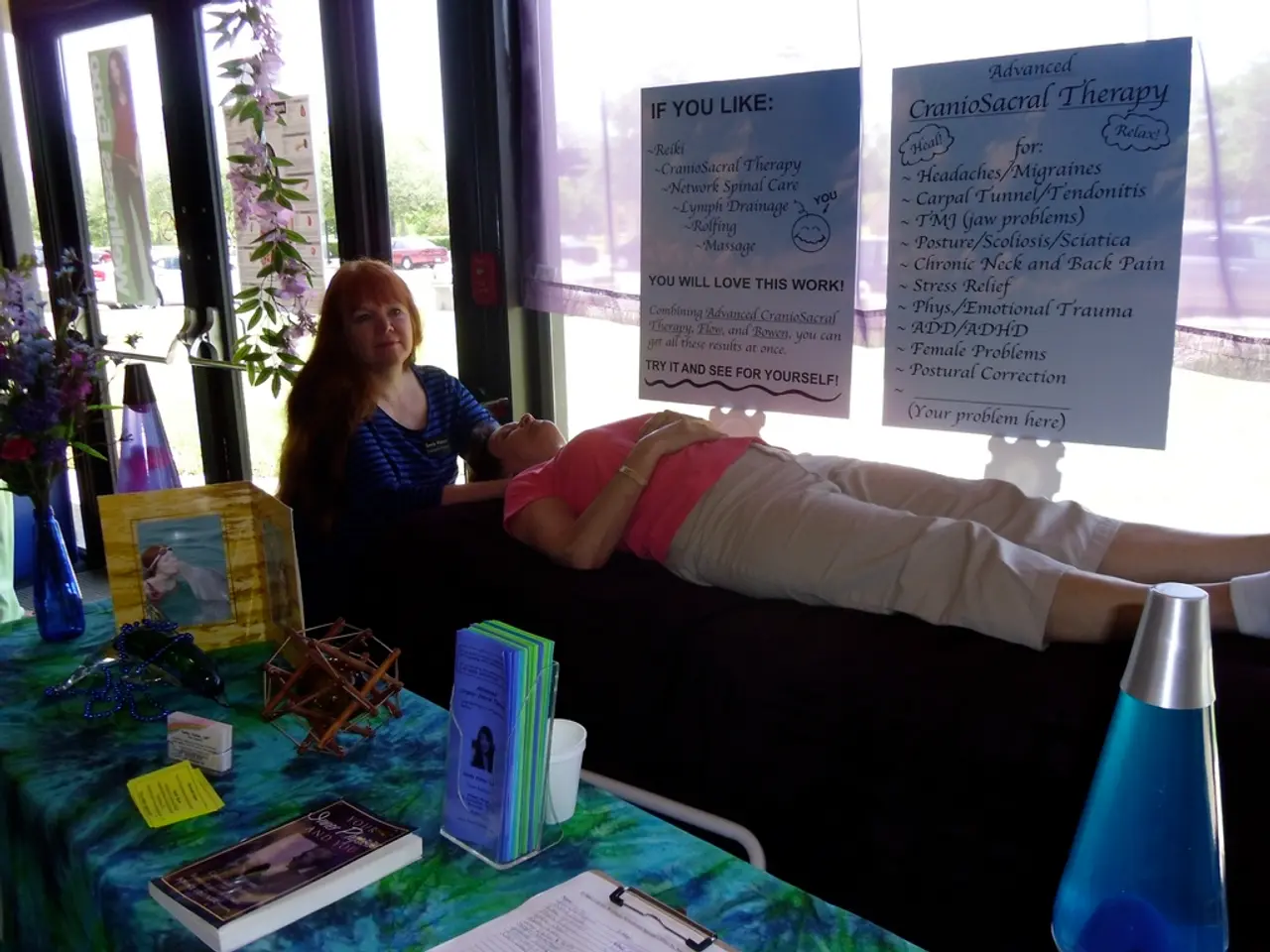Treatments for memory loss: Classifications, advantages, and additional insights
Improving Quality of Life for Dementia Patients: A Look at Various Therapies
Dementia, a condition that affects memory, thinking, and decision-making, currently has no cure. However, treatment can help relieve symptoms and improve the quality of life for those affected. In this article, we explore various therapies that have shown promising results in managing dementia.
Talk Therapy
Talk therapy, including cognitive behavioral therapy and related approaches, can help address behavioral and psychological symptoms associated with dementia. It may improve quality of life, but its direct impact on cognitive decline is limited.
Reminiscence Therapy
Reminiscence therapy involves discussing past experiences and memories to improve mood and communication. It is generally beneficial for enhancing social interaction and emotional well-being, though the evidence for cognitive improvement is modest and mixed.
Cognitive Stimulation Therapy (CST)
Cognitive stimulation therapy is one of the most evidence-backed non-pharmacological treatments. It has been shown to improve cognitive function and quality of life in mild to moderate dementia by providing engagement in themed activities and mental exercises. Meta-analyses confirm CST can lead to significant cognitive benefits measured by standard tests like the MMSE.
Reality Orientation Training (ROT)
Reality orientation training aims to reduce disorientation and confusion by providing repeated orientation cues (time, place, person). It can help with short-term improvements in orientation but tends to have limited long-term effects and may cause frustration in some patients.
Occupational Therapy
Occupational therapy focuses on enabling patients to maintain daily living skills and independence. It can reduce functional decline and improve activities of daily living, supporting autonomy and reducing caregiver burden. Outcomes depend on personalized interventions and disease stage.
Massage Therapy
Massage therapy may help reduce agitation and promote relaxation, improving behavioral symptoms and quality of life. However, evidence for cognitive improvements is limited and primarily anecdotal or from small studies.
Transcutaneous Electrical Nerve Stimulation (TENS)
TENS is less commonly studied in dementia. It might offer symptomatic relief of pain or agitation in some cases but lacks robust evidence supporting cognitive or functional benefits in dementia patients.
Summary of Benefits and Limitations
| Therapy | Benefits | Limitations | |-------------------------------|---------------------------------------------|-----------------------------------------| | Talk therapy | Improves mood and behavioral symptoms | Limited direct cognitive impact | | Reminiscence therapy | Enhances social interaction and mood | Modest cognitive benefits | | Cognitive stimulation therapy| Improves cognition and quality of life | Best for mild/moderate stages | | Reality orientation training | Improves short-term orientation | Limited long-term effect, may cause frustration | | Occupational therapy | Supports daily living and independence | Requires personalized approach | | Massage therapy | Reduces agitation, promotes relaxation | Limited cognitive evidence | | TENS | May reduce pain/agitation | Lack of strong evidence for cognitive benefit |
In conclusion, cognitive stimulation therapy and occupational therapy have the most consistent evidence supporting their use to improve cognitive and functional outcomes in dementia patients. Other therapies primarily target behavioral symptoms or quality of life improvements with more variable evidence for cognitive benefits.
Medication and Lifestyle Changes
People with dementia may experience anxiety or depression. Cholinesterase inhibitors can improve thinking skills and memory for people with dementia for a short time. Lifestyle changes such as getting plenty of sleep, being physically active, and eating a healthy diet can optimize cognitive functions for people with dementia.
References:
- Livingston, G., & Burns, A. (2019). Dementia: A practical guide for nurses. Wiley-Blackwell.
- Salmon, D. P. (2013). Treating people with dementia: A handbook for all health professionals. Radcliffe Publishing.
- Orgeta, V., & Winblad, B. (2014). Dementia care: A practical guide for nurses. Oxford University Press.
- While medication like cholinesterase inhibitors can improve thinking skills and memory for people with dementia for a short time, it's important to note that science continues to explore alternative therapies and treatments for this condition.
- For instance, retargeting health-and-wellness ads towards individuals who have shown interest in dementia-related content could potentially raise awareness and engagement for various contextual therapies and treatments.
- For example, therapies like cannabidiol (CBD) have shown promising results in managing anxiety and improving mental health in some patients. However, more scientific research is needed to fully understand its effects and potential as a treatment for dementia.
- The combination of therapies, medications, lifestyle changes, and perhaps even innovative treatments like Paxlovid (a COVID-19 treatment with potential neurological benefits) might offer a comprehensive approach to improving the quality of life for individuals affected by dementia.




